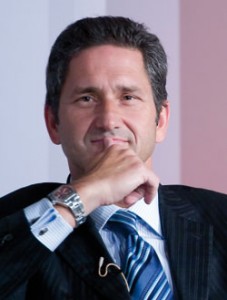
After more than 40 years of operation, DTVE is closing its doors and our website will no longer be updated daily. Thank you for all of your support.
Liberty Global’s Fries: net neutrality is ‘solution in search of a problem’
Demands for more formal network neutrality regulation is a “solution in search of a problem”, according to Liberty Global president and CEO Mike Fries.
Liberty Global does not discriminate against traffic or provide preferences to one content source over another, said Fries. “Network neutrality is in some ways a solution is search of a problem. However we recognise that another operator might work differently. We agree there should be transparency and an open environment. At the same time we should be incentivised to invest billions in networks.”
Fries said that Liberty is investing in creating broadband capacity, but added that there is a need for proper incentives to invest. He said there would be a need for some specialised services, and that there is plenty of capacity available for all application providers and will be more over time. He added that there is little need to worry about the ability of network providers to deliver content to users.
Fries said the presumption that cable could not be trusted is “false”. He said that consumers in Liberty Global’s cable territories had four or five choices about where to go for broadband. “Regulation in and of itself has not done one thing to make the internet great. I would be careful [about imposing regulation] because this energy and this ecosystem has been created from scratch by entrepreneurs and industry,” he said.
Fries said that operators needed a consistent approach to regulation across the EU. “We have fundamentally the same proposition [in each market],” he said.
Manuel Cubero, CEO of Vodafone-owned Kabel Deutschland and managing director and executive vice-president of Vodafone Deutschland, speaking on the same panel, said that consumers and business customers paid more for higher bandwidth and lower latency times depending on the requirements that they have. He cited the examples of medical applications and automotive applications that require higher quality parameters than other services.
“Quality categories are indispensable. Operators of these services will do deals with cable operators. It is not discriminatory. In the end-user segment it is more critical but it is not about having to pay at both ends. When there is a need to transmit data faster to customers and we can enable innovation, we want to be in a position to offer it,” he said. “We see that end users are willing to pay for different quality parameters.”
Cubero said that 50% of KD’s revenues had been invested in its network and the company was still increasing the capacity available to consumers. This had to be financed and cable operators have to be free to establish new business models, he said.
Fries and Cubero avoided answering directly a question by session moderator Werner Lauff on whether it made sense for them to combine Liberty Global and Vodafone, or arrange an asset swap that would allow them to merge their German operations.
Cubero said that consolidation in itself was a positive development, and that while in the past access routes had been scarce, there was now a much wider range of fibre and high-speed mobile broadband competitors in the market. “There is no scarcity of access routes,” he said. “Economies of scale internationally are important. It is also important to be able to offer things nationwide. We support this and we have huge willingness to make investments in broadband,” he said. “We are looking forward to further consolidation and growth. Vodafone has stated its strategy of convergence.”
Cubero declined to comment on the prospects for asset swaps between operators. He said that Kabel Deutshchland and Vodafone’s main focus is on convergence and creating convergent products for consumers.
Fries said that Liberty Global, chairman John Malone’s widely reported comments on the desirability of a combination of his company with Vodafone were really intended as a more general statement that convergence made sense. He said that Liberty Global had purchased Belgian mobile operator BASE because it also saw the “benefits of quad-play” and cited the example of the success of quad-play in the UK with Virgin Media.
“Network companies have to offer as many products as they can find,” he said.
Fries said that Liberty Global was in “the connectivity business” and wants to connect consumers on all devices. It also wants to make content easily available by aggregating it in an easy to access way. “It’s all about plug-and-play,” he said. He added that providing connectivity and the best applications, possibly through partnerships, is key.



